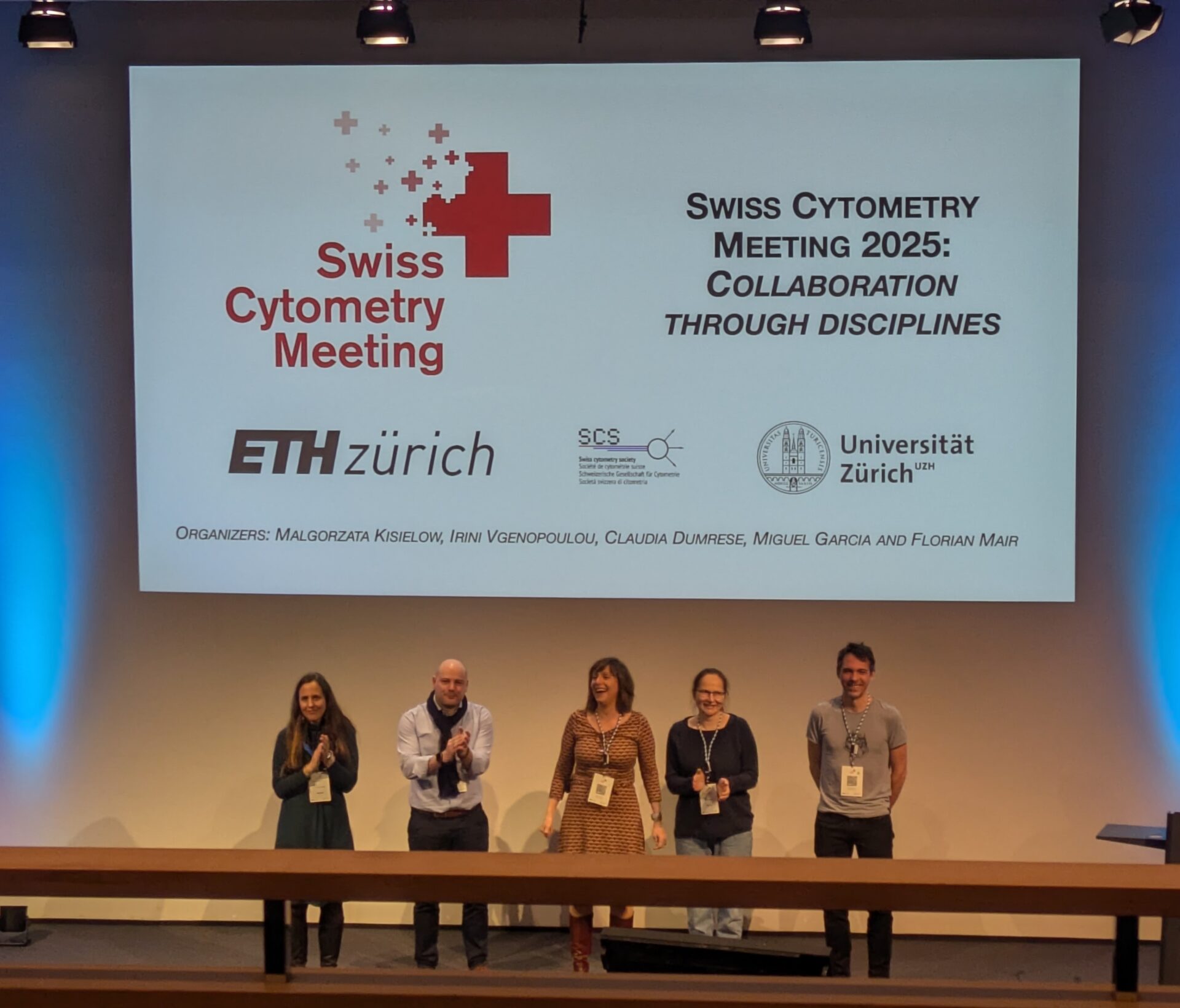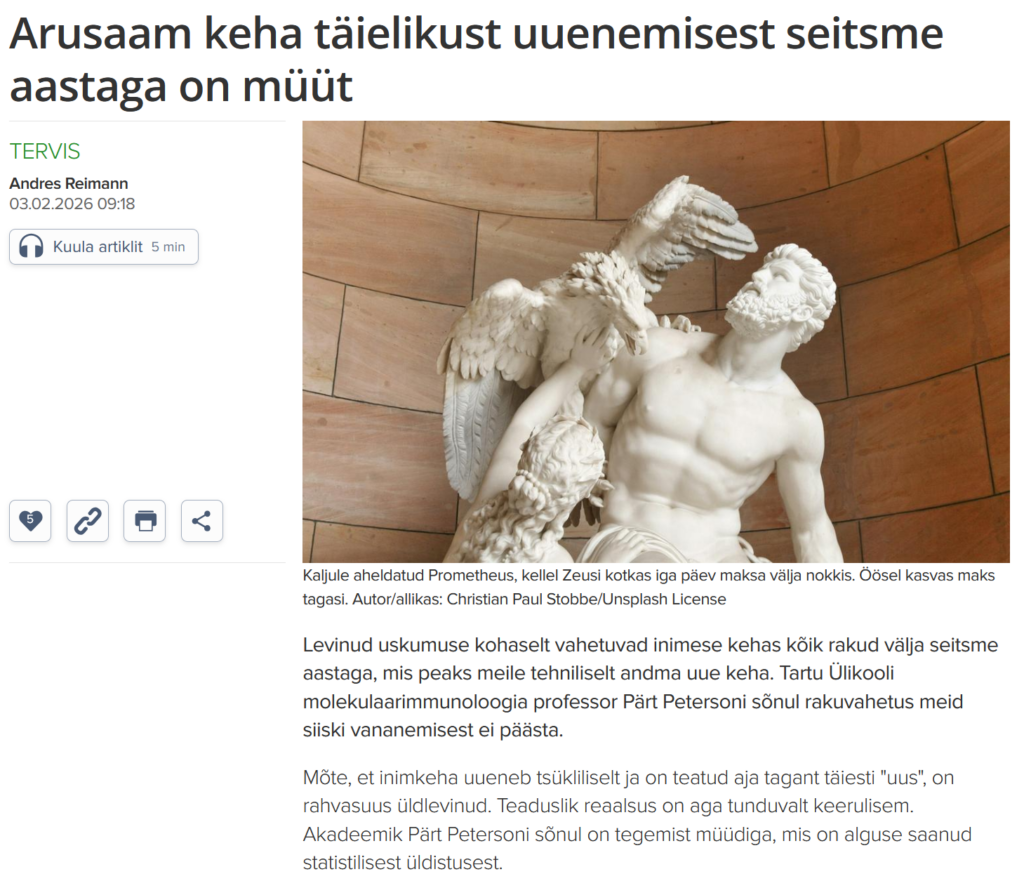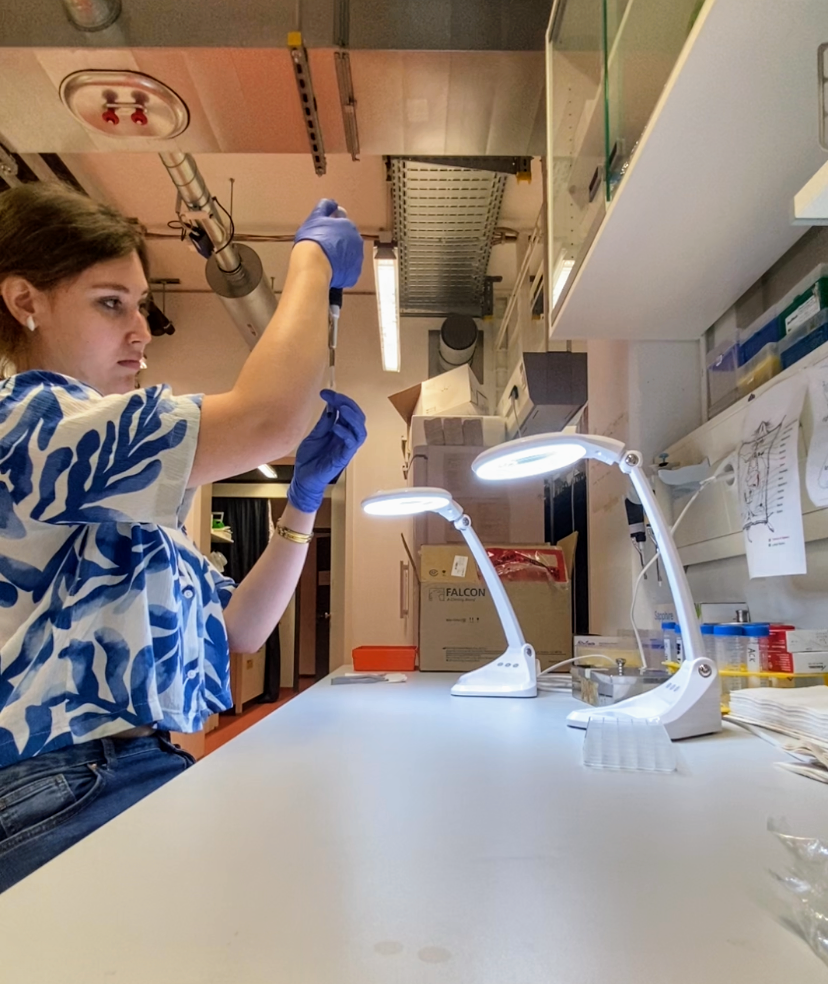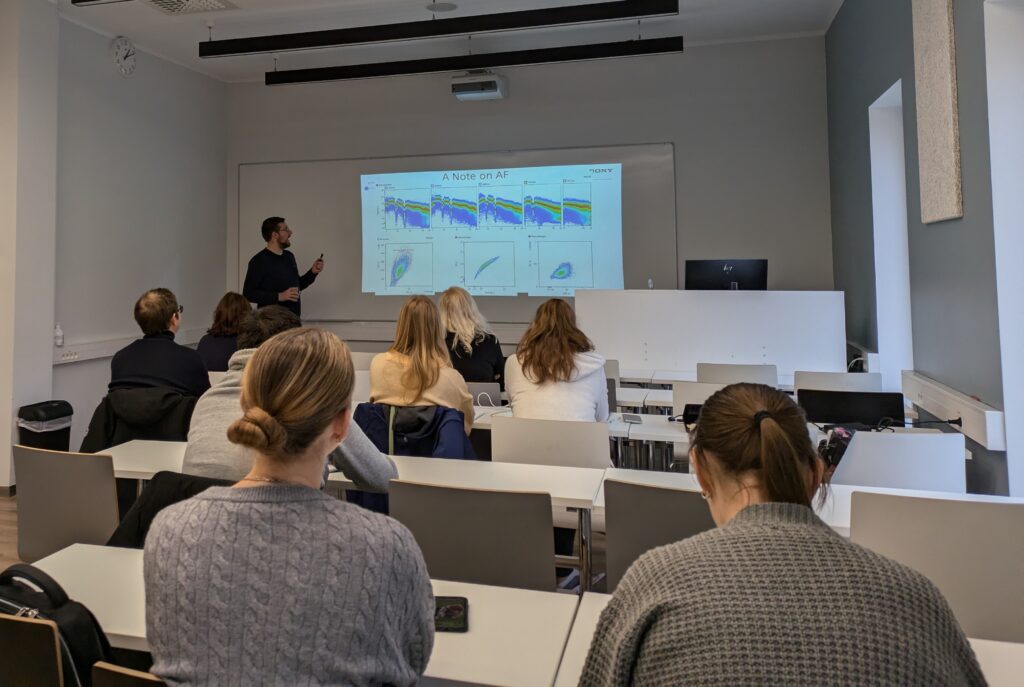Highlights from the Swiss & Baltic Flow Cytometry Conferences
So far in 2025, SysAge has been represented at not one but two flow cytometry conferences. In February, members of our team attended the 4th Swiss Cytometry Meeting in Zurich, and just a few weeks later, participated in the inaugural Baltic Flow Cytometry Society Conference in Vilnius. At both events, SysAge contributed not only through attendance but also through active scientific input — including a poster presentation and a keynote talk. In this post, we highlight what made each event special
4th Swiss Cytometry Meeting
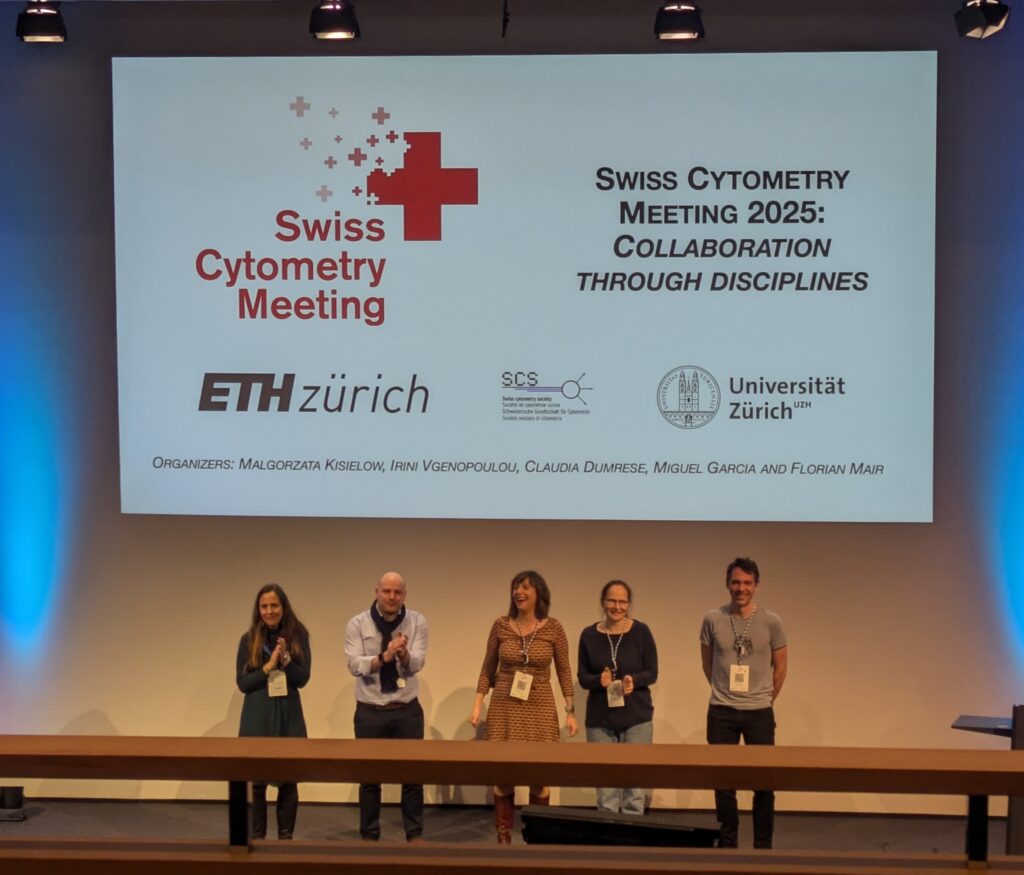
SysAge was represented by Tuuliki Pomerants and Elise Helena Armulik, a PhD student. The conference itself was pretty big with 37 presentations spread over 3 days, there were even some parallel sessions so having two people on site helped a lot.
The majority of presentations were part of the research track, delivered by both early-career and senior researchers. These talks could be broadly categorized into five main themes: CAR-T therapy, analysis methods, single-cell technologies, high-parameter panels, and extracellular vesicles (EVs). In addition to these, vendors were given space to present product-focused sessions, offering insight into the latest tools and reagents in the flow cytometry field.
In addition to the talks there were two workshops one about panel design by Florian Mair and the other about best practices in computational analysis of flow cytometry data by Sofie van Gassen. Both sessions had practical value, and several of their suggestions have already been now implemented in our lab’s own work.
When Tuuliki and Elise were asked about any talks they wish to highlight these were their answers:
Tuuliki said: ” I really liked Oliver Burtons talk about FlowCodes that allows one to track genetic modifications through spectral flow cytometry thanks to antibodies that have a histone tail added. His work used them to track tissue Tregs, but I imagine they could have a lot of potential uses.”
Elise said that her highlight was the first presentation of the conference and that was all a about new macrophage population – adenophage – discovery by Burkhard Becher. A nice use of spectral flow cytometry that then lead to us knowing more about the role of the GM-CSF.
Elise also contributed to the conference by presenting her poster titled “The Impact of Inflammatory Pathways in Fetal Thymic Immune Cell Development.” The poster sparked some great conversations with other early career researchers and was a great opportunity to share her work with a broader audience.
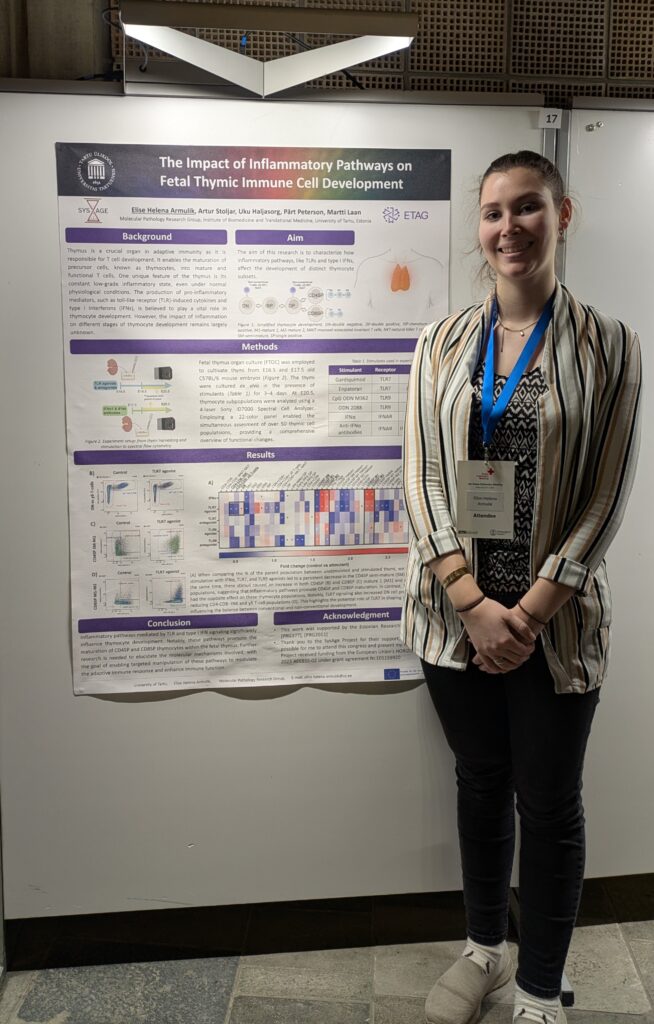
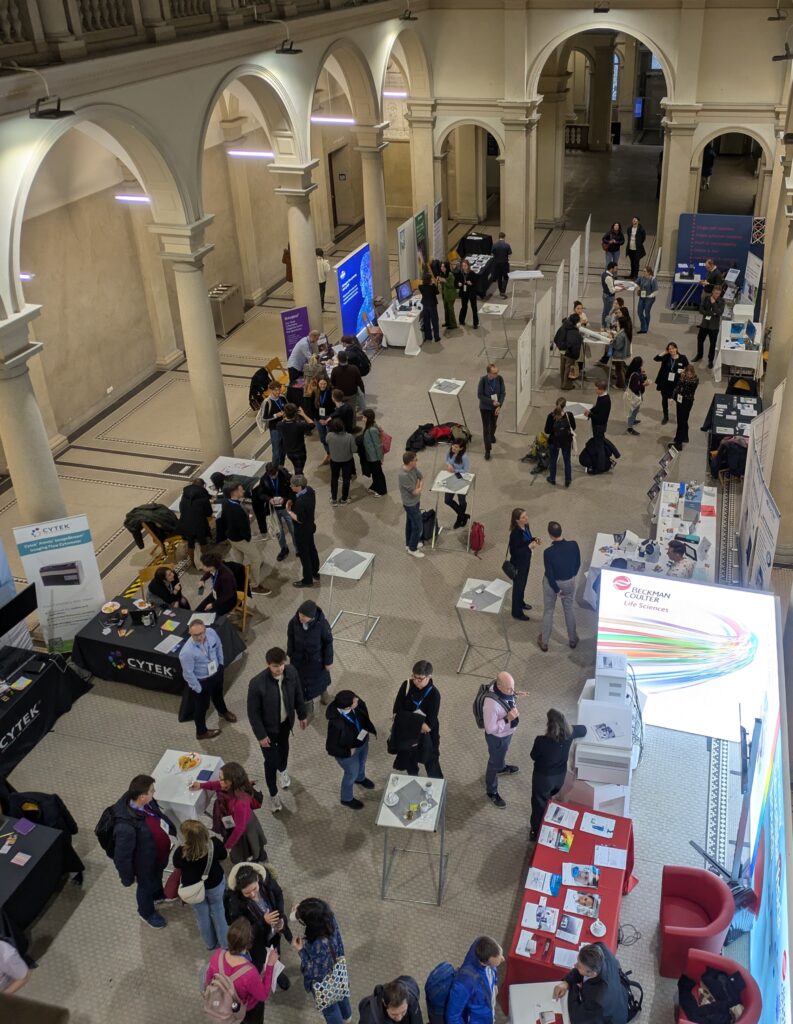
Baltic Flow Cytometry Society conference
A few weeks later, SysAge participated in a completely different — but equally inspiring — event: the first-ever Baltic Flow Cytometry Society Meeting, held in Vilnius, Lithuania from March 13–14 at the Innovative Medicine Centre. The conference featured presentations from both students and established researchers, spread across six sessions. Vendors also had the opportunity to present their latest technologies and reagents, adding further depth to the program.

This event marked the launch of the new Baltic Flow Cytometry Society, which was made possible in part thanks to another EU Horizon project. It brought together researchers and cytometry professionals from Estonia, Latvia, Lithuania, and Poland, as well as many others from across Europe, and laid the groundwork for stronger regional collaboration. We’re especially excited that the 2026 meeting has already been announced to take place in Riga.
Representing SysAge were Uku Haljasorg and Tuuliki Pomerants. Uku delivered a keynote talk on chronic stress in aging mice. In addition, his talk focused on how switching from conventional to spectral flow cytometry has expanded our ability to design complex panels and extract deeper immunological insights.
Compared to the Swiss meeting, the Baltic conference highlighted a different reality: most of the research in our region still relies on conventional flow cytometers, with only two labs currently using spectral systems. This made Uku’s talk especially impactful, offering a glimpse into what’s possible as access to advanced instrumentation continues to grow.
What made the Baltic meeting truly special was the strong sense of regional connection. The smaller, more community-focused atmosphere made it easy to have conversations with researchers from across the Baltics.
For SysAge, this meeting was an important reminder that progress isn’t just about technology — it’s about people, networks, and shared goals. The Baltic Flow Cytometry Society has opened up new avenues for cooperation, and we’re proud to support its continued growth.
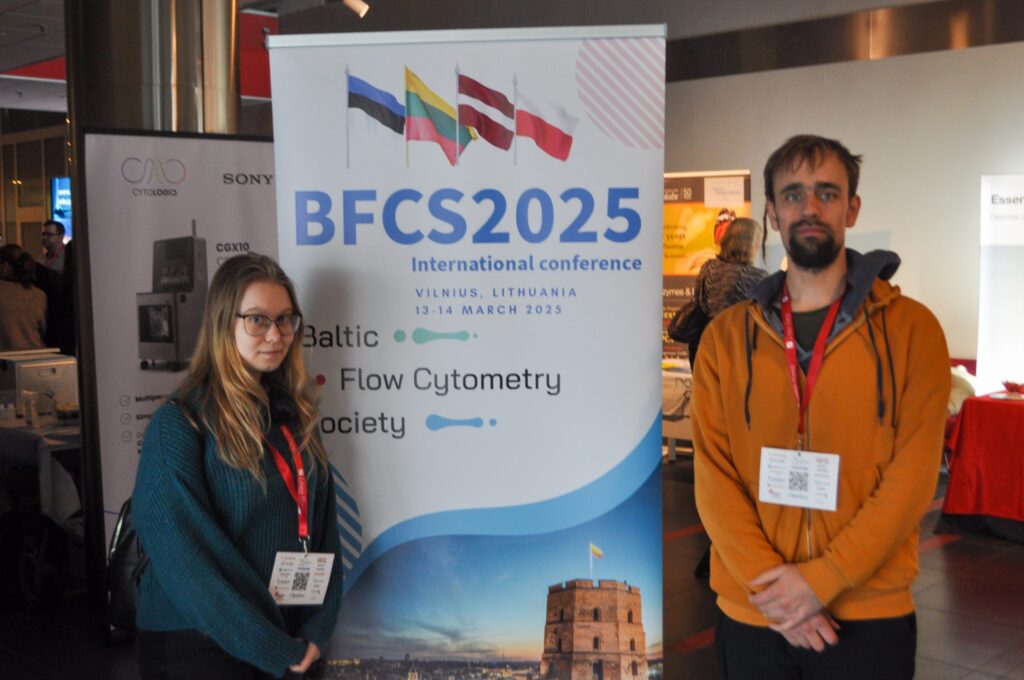
Looking Ahead
Whether it’s exploring high-end spectral technologies in Zürich or strengthening grassroots collaboration in Vilnius, these two conferences offered something invaluable: fresh ideas, new partnerships, and renewed energy to drive our mission forward.
We’d like to thank the organizers of both events for hosting such wonderful conferences — and we’re already looking forward to seeing where 2026 takes us next.
Stay tuned for more updates from the SysAge team!


